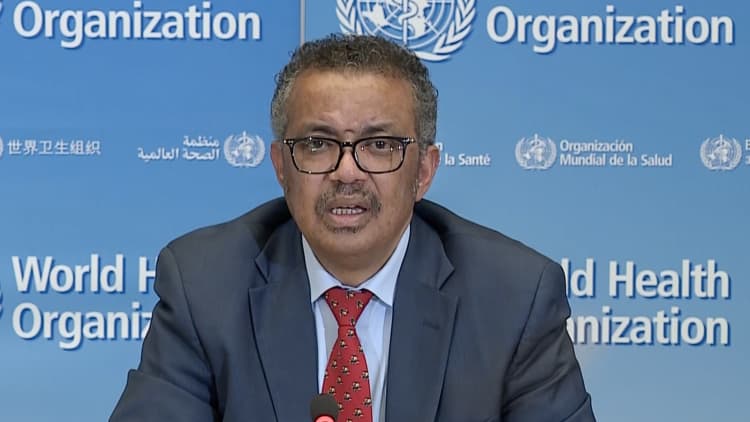The coronavirus could infect up to one billion people and kill 3.2 million people in 34 "crisis-affected countries" as the pandemic exacerbates humanitarian crises, the International Rescue Committee said Tuesday in a new report.
The analysis includes countries in war zones such as Afghanistan and Syria, as well as countries suffering from persistent poverty before the pandemic, including Greece and Venezuela.
"These numbers should serve as a wake-up call: the full, devastating and disproportionate weight of this pandemic has yet to be felt in the world's most fragile and war-torn countries," CEO of the committee, David Miliband, said in a statement.
The IRC is a humanitarian non-governmental organization. Last month, it announced an initiative to address the coronavirus pandemic, particularly in refugee communities.
The IRC's new report "One Size Does Not Fit All: Mitigating COVID-19 in Humanitarian Setting" says its estimates are conservative. The organization did not account for limited access to health care in many of the countries it analyzed. The report says South Sudan, for example, has just four ventilators and 24 intensive care units.
The IRC warns that some of the countries included, such as Bangladesh, host the largest and most densely populated refugee camps in the world, where the virus could spread even more rapidly.
"While COVID-19 is a novel virus and much is still unknown, it is clear that its impact in these settings will be different than in the wealthier countries first hit by the pandemic," the report says.
Existing humanitarian crises like political and economic instability combined with the Covid-19 crisis and the response to it could create a "double emergency" for vulnerable countries, the IRC warns. The report adds that the economic consequences of lockdown measures in the poorest countries will increase global poverty and food shortages.
The coronavirus pandemic is expected to double the more than 820 million people already facing food insecurity, according to the IRC, and could drive new famines in three dozen countries. The IRC says sporadic border closures have already disrupted food and aid supplies in Afghanistan.
"Long-term restrictions on movement could force farmers to abandon farms, sell off livestock to cope with lost income, or take other measures that undermine their long-term self-sufficiency and increase their dependency on aid," the report says.
The same disruptions in the supply chain that led to shortages of personal protective equipment for U.S. hospitals also threatens to hurt delivering humanitarian aid to countries that rely on it for basic services, IRC added. According to the IRC, South Sudan and the Central African Republic depend on non-governmental organizations for 80% and 75% of health services, respectively.
The organization adds that as the world's health organizations and pharmaceutical companies prioritize Covid-19 research, progress on treatments for other widespread and life-threatening diseases like measles will go overlooked.
The World Health Organization warned Monday that children across the world will die as the coronavirus pandemic forces some countries to temporarily halt vaccinations for other deadly diseases such as polio. At least 21 countries are reporting vaccine shortages as a result of travel restrictions meant to curb the spread of the Covid-19 pandemic, WHO Director-General Tedros Adhanom Ghebreyesus said
"We are still in the critical window of time to mount a robust preventative response to the early stages of COVID-19 in many of these countries and prevent a further perpetuation of this epidemic globally," IRC's Miliband said.
The IRC is calling on countries to include exceptions for humanitarian organizations in all Covid-19 movement and export restrictions.



